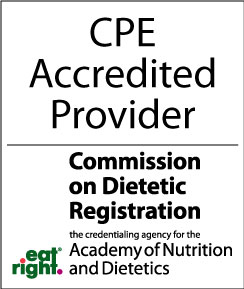8:30 AM – 12:00 PM
Renaissance Boston Waterfront Hotel – Pacific Grand Ballroom E
Program Description
Recommendations for dairy product consumption are limited to low-fat and fat-free versions because of the calorie and saturated fat content of whole milk products. Saturated fat consumption is frequently thought to be associated with increased risk of cardiovascular disease; however, saturated fat is not a single compound but rather comprises a broad spectrum of fatty acids that exert differential effects on metabolic and health outcomes. The saturated fat in dairy foods is rich in different classes of saturated fatty acids, and recent observational and clinical research data indicate that some of these fatty acids are unique and may be beneficial to human health. This session aims to clarify the current understanding of the health effects of saturated fat in the diet and broaden the dialogue of dietary guidance from one of select nutrients, to one of dietary patterns that may impact health outcomes.
To view videos of this recorded session, click on presentation links included below.
Introduction. Mario Kratz, PhD, Fred Hutchinson Cancer Research Center, Seattle, WA
Current dietary fat recommendations and the bioactive fatty acids of milkfat. J. Thomas Brenna, PhD, Cornell University, Ithaca, NY
Clinical evidence for saturated fat and full-fat dairy foods on lipid biomarkers. Moises Torres-Gonzalez, PhD, National Dairy Council, Rosemont, IL
Dairy foods, dairy fat and cardiometabolic outcomes. Dariush Mozaffarian, MD, DrPH, Tufts University, Boston, MA
Panel Discussion moderated by Mario Kratz, PhD, Fred Hutchinson Cancer Research Center, Seattle, WA
Learning Objectives
At the end of this session, attendees will be able to:
- Describe the fatty acid content of whole-milk dairy foods.
- Discuss the role of whole-milk dairy in metabolic diseases.
- Summarize recent research findings in the context of healthy dietary patterns.
Continuing Professional Education (CPE): ASN designates this educational activity for a maximum of 3.5 CPEUs. Dietitians and dietetic technicians, registered should only claim credit commensurate with the extent of their participation in the activity. ASN (Provider #NS010) is accredited and approved by the Commission on Dietetic Registration (CDR) as a provider of Continuing Professional Education (CPE) programs for Registered Dietitians.
Learning Level 2
Suggested Learning Codes:
2070: Macronutrients: carbohydrate, fat, protein, fiber, water
5290: Metabolic disorders, Inborn errors
2000: Science of food and nutrition
4000: Wellness and public health
Please fill out the evaluation below in order to claim credit.
Click here for CPE Evaluation!
Continuing Professional Education (CPE) FAQ for Dietitians.


